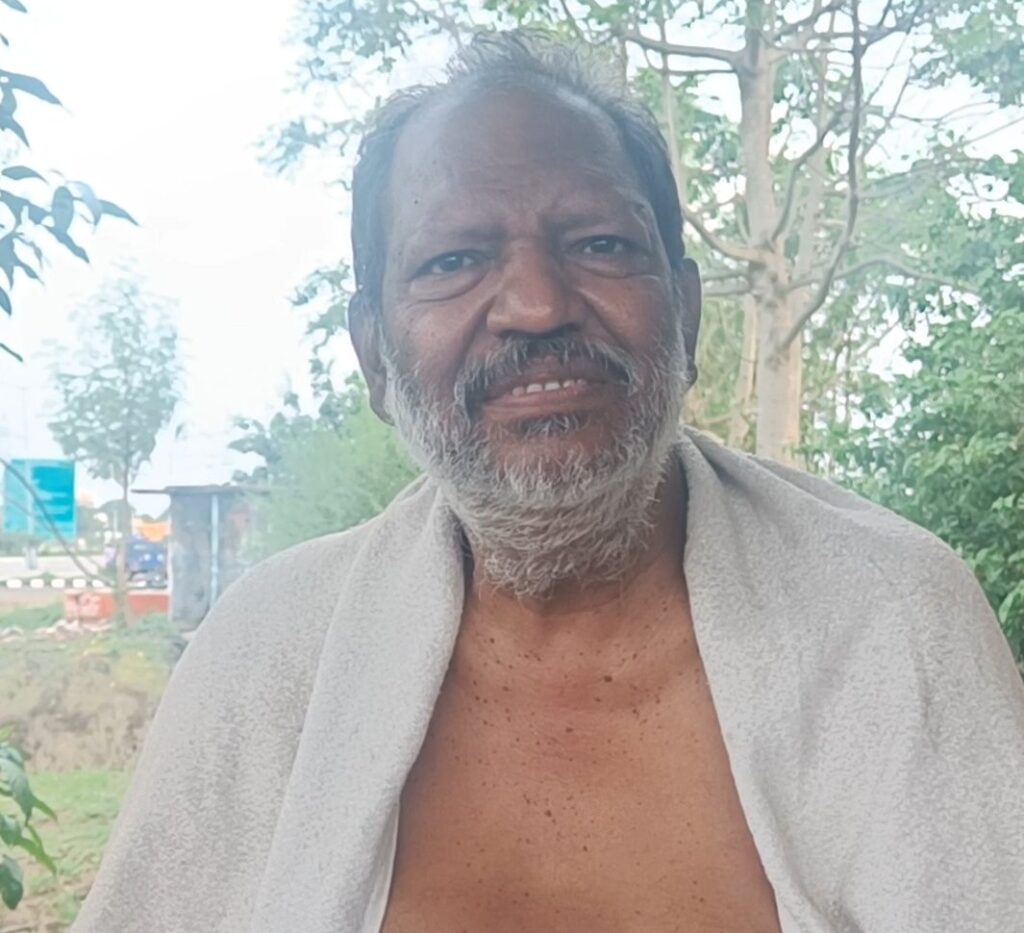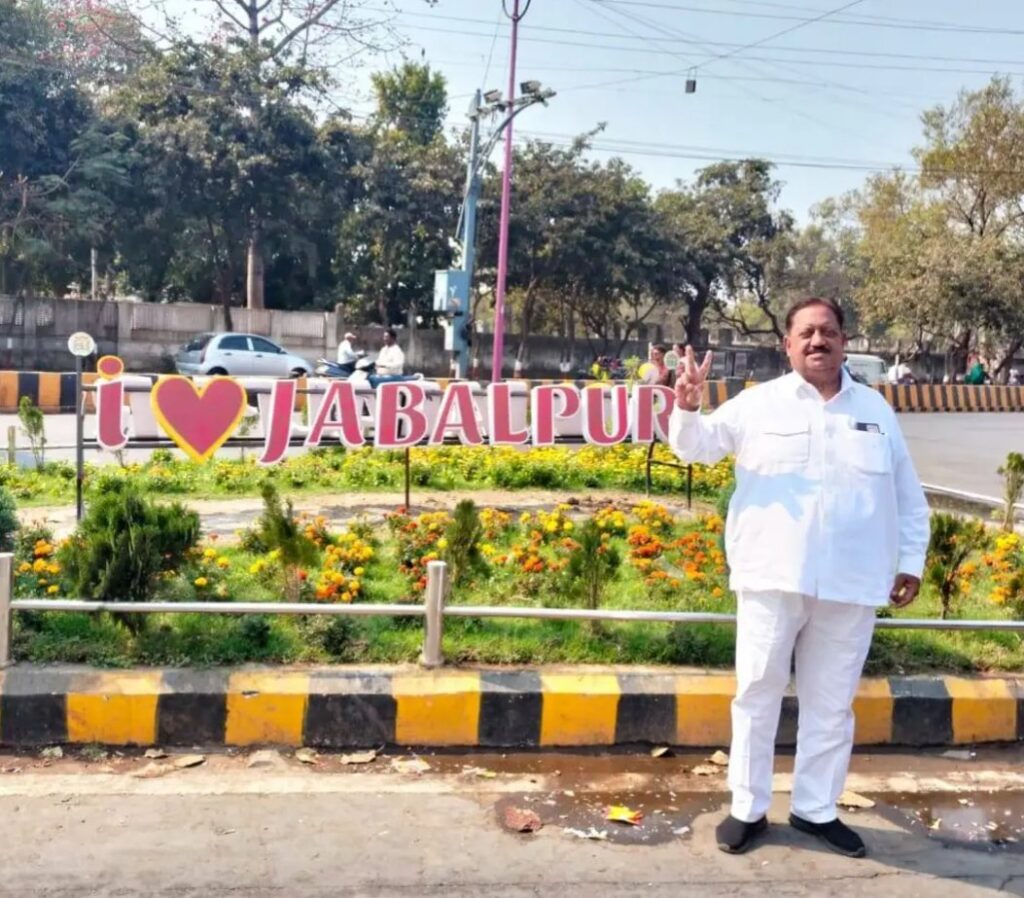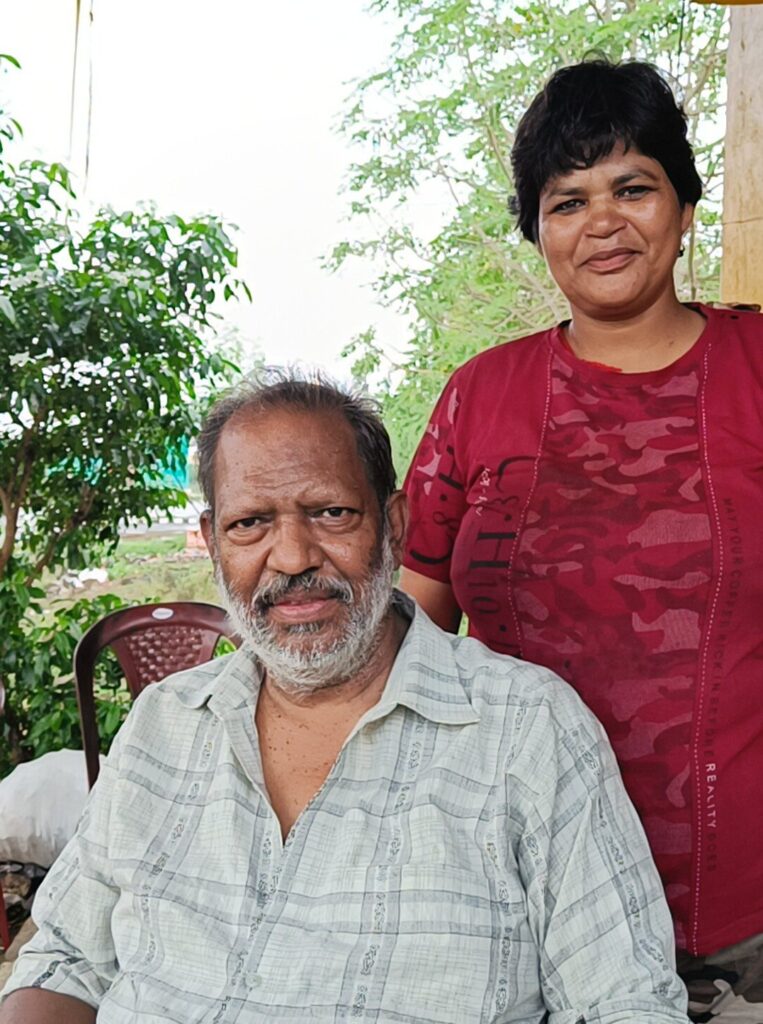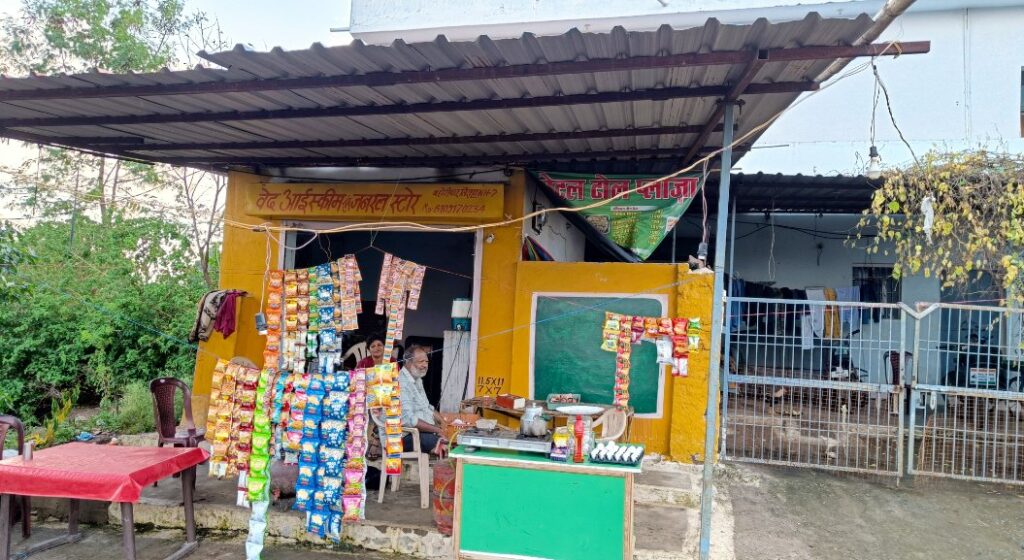Life of an individual who committed the first and the quickest bank robbery in India
Bank robbery is a serious criminal act only few people dare to undertake. These incidents involve armed individuals or groups who meticulously plan their operations to bypass security measures and gain access to the vaults. There is a particular mindset that the individual must have in order to take up such daring heists.
During my all India cycle tour, I had a memorable encounter with Glen Paul and Anglo Indian, who provided me with valuable insights into the realities of life behind bars and the motivations that drive individuals to resort to extreme measures such as bank robbery. Glen, who orchestrated the historic heist at the State Bank of India in Jabalpur on the 13th of March, 1982, has been a fighter throughout his life. This remarkable event marked India’s first bank robbery and was executed swiftly within a mere 2.5 minutes. As he narrated his life’s journey, Glen described how he overcame various challenges, breaking his experiences into distinct fragments, each demonstrating his unwavering resilience and fighting spirit. His tales were both captivating and thought-provoking, shedding light on the complexity of human choices and the enduring nature of his own resilience.

Fight with the inner voice
Glen Paul’s father served as a pastor in the 7th Day Adventist Church. However, Glen had reservations about the church’s portrayal of Jesus as a beaten figure, finding it lacking in power and strength.
At the age of 16-17, he developed a strong desire to achieve something significant, fueled by his dissatisfaction with the system and people around him. Glen learned karate and was influenced by books like The Godfather. He began working with a notorious criminal named Karan Singh, who had murdered a police officer. Becoming Karan’s right-hand man, their relationship soured, and Glen, with the help of his cousin Walley, resorted to praying to Satan and performing rituals involving candles. In an unexpected turn of events, Karan’s head was accidentally severed by an unknown person.
Glen started worshiping Satan, believing he had been granted powers. He subscribed to the idea that according to the Bible, we live in Satan’s kingdom, where he rules the world. Glen had several encounters with the law, resulting in multiple short stints in jail for minor crimes. Eventually, he escalated to more significant offenses, including the robbery of the SBI branch in Jabalpur’s Gadab area. This bank heist became the first of its kind in India and was executed in a record-breaking 2.5 minutes. Glen was accompanied by five other individuals, including one person from Mauritius and an Iranian. However, their operation was compromised when an auto driver recognized the Mauritius accomplice named Ringo, leading to their arrest and subsequent imprisonment.
Fight for survival
While in prison, Glen was incarcerated in the Central Prison in Jabalpur. After a year of being under trial, the decision on his case was reached. Frustrated and desperate, he made a solemn prayer to Jesus, promising to serve Him if acquitted and to commit a heinous act if convicted. Unfortunately, Glen was found guilty and sentenced to seven years in prison. Within the confines of the prison, he turned to drugs like Mandrix, LSD, and marijuana as alcoholic drinks were not smuggled in. Glen’s drug use escalated, but one day he overdosed on gardenal, experiencing intense pain and physical discomfort. In his moment of despair, he realized the futility of fighting against God and surrendered.
At Russell Chowk, Glen wrote a postcard to his teacher, who had once prophesied that he would turn to God. In the message, he requested a copy of the Bible, and his teacher graciously provided her own. Glen immersed himself in reading the Bible, devouring it repeatedly from cover to cover, just as he had done with The Godfather books. This experience brought enlightenment and transformation. Despite being in jail, Glen pursued his education, completing his B.Com and M.Com from within the prison walls. He even authored a book about his experiences in prison, although he unfortunately lost the manuscript.
Glen had a wealth of insights to share about the functioning of the prison system. He described the prison as a condensed society, complete with politics, corruption, and a struggle for power. He explained the hierarchy within the system, from convict night watchmen to the jail minister. The meals served to the 2,000 prisoners were often insufficient, with a significant portion of the allocated budget being embezzled by the superintendent and jail minister. Glen highlighted the lack of transparency within the prison, where the true conditions were hidden behind the four walls. He emphasized that many of the inmates, up to 90%, were innocent villagers who were victims of societal circumstances. Glen revealed that the real criminals often went free while those who were convicted were often innocent, as undertrials had a better understanding of the law and how to exploit it.
Fight against the society
After his release from prison, Glen’s life took a new direction when he encountered travelling missionaries who shared a different perspective on Christianity. They rejected the traditional church system and focused on the message of Jesus to give up material possessions and spread His gospel. Intrigued by their ideology, Glen joined them and embarked on a journey that spanned Bangalore and Hyderabad over the next six years.
During this time, Glen and his fellow missionaries engaged in societal service by collecting donations from businessmen and channeling them towards NGOs and other organizations. Their aim was to make a positive impact on society and contribute to the welfare of the less fortunate. Inspired by this mission, Glen immersed himself in this work, dedicating himself to helping others and spreading the teachings of Jesus in a practical and meaningful way.
Fight against the family
Glen’s life took a tragic turn when he learned that his eldest brother had killed one of their younger siblings out of greed for money and power. Seats are reserved in parliament and assembly for Anglo Indians. He said his brother wanted to contest for these posts and take over the family property. The incident led to the family’s dispersal, with Glen’s remaining siblings settling in New Zealand while their father’s schools and colleges were taken over by the eldest brother.

FB profile: https://m.facebook.com/denzil.paul.319
At the age of 34, Glen returned to Jabalpur and married his first wife, who was eight years older than him and a member of the missionary group. They ran successful schools together, but Glen’s reckless behavior, including gambling and drinking, caused a decline in their fortunes. Seeking revenge for his brother’s actions, Glen became involved in criminal activities and fought against hardened criminals, using his experience and connections from his time in prison.
As the schools gradually closed down, Glen’s life took another unexpected turn when he encountered his second wife, an ex-army major, at an exhibition. Their relationship was complicated by her existing marriage and an unplanned pregnancy. Despite living together for ten years and having children, she eventually left Glen and moved to Nasik.
Reflecting on his tumultuous life, Glen describes a sense of emotional detachment that has developed over the past two decades. The experiences and hardships he endured have left his heart hardened like stone, leaving him devoid of feelings.
Fight against everything that came along the way
Glen’s journey began with challenging circumstances, engaging in jungle activities and farming. At the age of 44, he utilized his English proficiency to teach spoken English. Inspired by the success of Anurag Soni’s British School of English in Jabalpur, Glen started teaching housewives. One incident pushed him to develop an innovative syllabus emphasizing learning through practical application, akin to swimming or dancing.
Becoming a renowned spoken English teacher, Glen founded Glen Paul’s Spoken English Club and ventured into TV anchoring. His show, “Savdhan Jabalpur,” gained popularity by exposing criminal activities through sting operations. However, conflicts with news channel personnel led to the show’s closure.
Glen Paul teaching English in his English club:
https://youtube.com/watch?v=ID2hIDSQG0g&feature=share
Glen Paul and Savdhan Jabalpur
https://youtube.com/@jabalpursavdhan4566
After a farming venture that ended in losses due to a dam burst, Glen entered his third marriage. Motivated by the prospect of inheriting his wife’s property, who had been a maid for a prominent lawyer, RK Gupta, Glen found himself facing challenges. The marriage turned tumultuous, with restrictions on his freedom and a disagreement over the relationship’s foundation. Glen later claimed to have made a threatening remark in jest about taking the property.
Complications arose when Glen’s wife accused him of having affairs and sought compensation. A confrontation occurred, and ultimately, she disappeared. Glen believes he is entitled to inherit the property due to the marriage letters and intends to investigate the matter further. The property is currently managed by RK Gupta’s son, as Glen’s wife proved incapable of handling it due to her erratic behavior and involvement with other individuals.
As Glen navigates these circumstances, the outcome of his endeavors and the resolution of the property inheritance remain uncertain.
The current fight financially and against health
After experiencing farming losses, Glen moved to the impoverished community of Madua. He sold samosas from a pushcart to make a living. During this time, he met Sushma Paul, his current wife who lived nearby. Sushma is illiterate and they share a habit of drinking in the evenings.

They faced difficulties with their landlord, who cheated them out of money. Glen used to receive 20,000 rupees per month from a school building but entrusted it all to his landlord, leaving him without money or food.
Together, Glen and Sushma started a dhaba on the highway, to move away from all criminal acts, where they earn around 500 rupees daily. They drink country liquor, costing them 220 rupees each day. Glen now receives 10,000 rupees monthly as rent from the school building, but most of it goes towards living expenses.

Sushma, who has a criminal background, was previously charged with killing a cop but has since been acquitted. She is a street fighter and often acts as Glen’s protector. They have encountered financial difficulties, sometimes needing to borrow money, which they eventually repay.
When asked about their plans for the future, Glen reflects on his experiences and religious beliefs. He believes that this world is temporary and that Jesus will come to earth shortly following which heaven is the destination. Glen has no ambition for material possessions or a permanent home, as he sees the world approaching its end. Despite facing health issues such as hypertension, heart disease, lung fibrosis, rheumatoid arthritis, and a kidney stone, Glen continues to drink daily wondering when death would arrive.
Glen’s mindset
Glen’s life has taken unexpected turns, encompassing both darkness and redemption. He describes transitioning from a life associated with negativity to one aligned with his faith in God. His journey has exposed him to diverse socio-economic realities, providing him with unique insights and experiences. Curious to delve into his perspective, I engaged him in a conversation, seeking a deeper understanding of his current mindset.
Justification
Glen finds himself driven by a sense of purpose, inspired by both “The Godfather” and the Bible. His inner fighter urges him to combat injustice, exemplified by his confrontation with Anurag Soni while teaching English. He believes in fighting for what he perceives as fair and just. Even in his missionary work, he sees himself engaged in a battle. The land he farmed was acquired through a struggle against his deceitful brother. Presently, he views life as a spiritual warfare, with human beings as the battleground between God and the devil. Through prayer, he aligns himself with God, eagerly awaiting divine instructions. Glen sees his interactions as a conduit for God’s messages and guidance.
Validation
Glen’s validations revolve around his detachment from society and his opposition to various systems. He considers himself aloof, choosing not to form attachments with others. He sees the social, economic, political, and educational systems of the world as flawed, built on false teachings. Glen believes that these systems promote greed and selfishness, which he attributes to the influence of Satan, the devil. His stance reflects his rejection of mainstream societal structures and his conviction that they are fundamentally misguided.
Complaint
Glen’s only complaint is about his medical situation. Aside from that, he expresses being extremely happy with his life.
Materialism
Glen’s approach towards materialism is driven by a desire to utilize wealth as a means to spread his message. He believes in the message of God’s love for the world and the offer of eternal life through faith in His Son. Rather than seeking personal gain or indulgence, Glen sees material resources as a tool to promote his spiritual beliefs and share his message of salvation. He said he would buy a caravan that he would use to travel the world in order to spread the message.
Message – For God so loved the world that he gave his one and only Son, that whoever believes in him shall not perish but have eternal life.
Comment below and let me know your thoughts on Glen. In my journey, I met one another person convicted of killing another man and spending 20 years in jail. To read about the story, head to this article.
I am a 31 year young PhD graduate who has decided to travel the length and breadth of India on my cycle, to document the journey of meeting a vast array of people. In my journey, I intend to understand the characteristic features of the people of this nation and categorize them based on their demographics, age, profession, gender, traditions, and cultural differences.